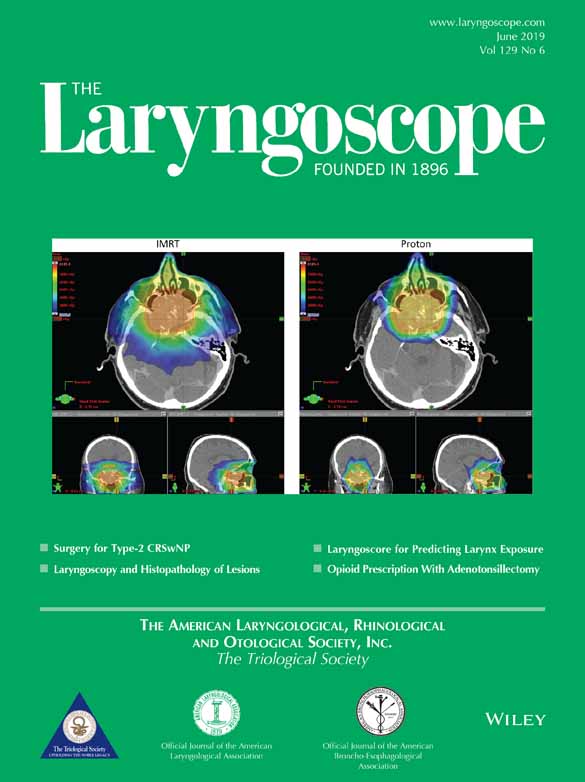Refusal of Cancer-Directed Surgery in Head and Neck Squamous Cell Carcinoma Patients
The authors have no funding, financial relationships, or conflicts of interest to disclose.
Abstract
Objectives/Hypothesis
To investigate the risk factors for refusal of recommended surgery in head and neck squamous cell carcinoma (HNSCC) treatment
Study Design
Retrospective review of a national database.
Methods
The Surveillance, Epidemiology, and End Results database was queried for all cases of HNSCC from 1989 to 2014. Patients who underwent recommended surgery (N = 98,270) were identified and compared to patients who refused recommended surgery (N = 3,582). Groups were compared for patient demographics, socioeconomic variables, and tumor characteristics including stage, grade, and primary site. Binary logistic regression was performed to determine independent predictors of surgery refusal.
Results
Of the total population, 1.8% of patients refused cancer directed surgery. Following regression, the strongest predictors of surgery refusal were found to be age greater than 75years (odds ratio [OR]: 4.23 [95% confidence interval {CI}: 3.00-5.96]), and stage III (OR: 4.19 [95% CI: 3.15-5.57]) or stage IV at diagnosis (OR: 4.49 [95% CI: 3.46-5.80]). Black race was significantly predictive (OR: 1.71 [95% CI: 1.37-2.13]) as well as marital status other than married (OR: 1.76 [95% CI: 1.49-2.07]) and Medicaid insurance status (OR:1.46 [95% CI: 1.20-1.77]). Primary site of larynx (OR: 2.01 [95% CI: 1.71-2.37]) or base of tongue (OR: 2.34 [95% CI: 1.87-2.92]) additionally predicted surgery refusal.
Conclusions
A number of demographic, socioeconomic, and tumor-related variables are associated with refusal of cancer-directed surgery in head and neck squamous cell carcinoma. Recognition of these factors may help identify situations where more active education and support are needed to help patients accept optimal care.
Level of Evidence
4
Laryngoscope, 129:1368–1373, 2019




